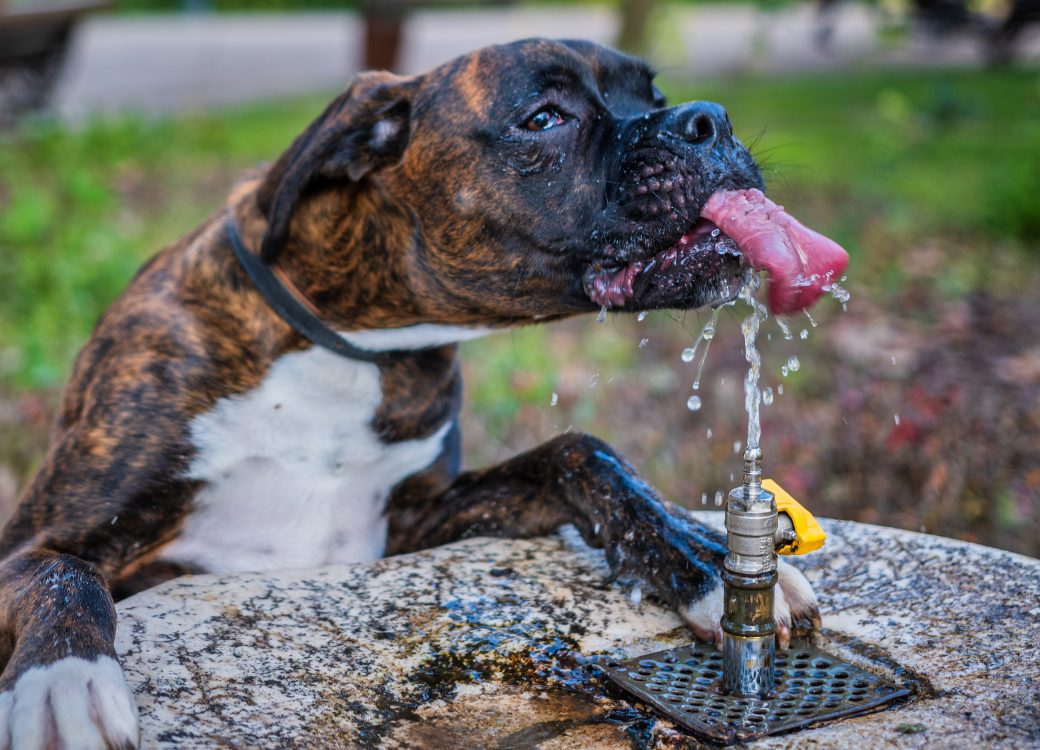Holistic veterinary care is gaining popularity among pet parents due to its comprehensive and personalized approach to animal health. By considering the whole animal rather than just specific symptoms, this method emphasizes natural remedies, different modalities, preventive measures, and overall wellbeing.
In this post, we'll take a closer look at what holistic veterinary care is, how it contrasts with traditional veterinary care, and the unique benefits it offers. Plus, we'll provide guidance on when to consider a holistic vet and how to find a qualified practitioner you can trust.
By exploring these aspects, you'll be better equipped to decide if this approach aligns with your pet's needs and your philosophy as a pet parent. Ready to get started? Then let's dive in!

What is Holistic Veterinary Care?
Holistic veterinary care involves using all available diagnostic and treatment methods to address every aspect of an animal's health, ensuring comprehensive and effective care.
Whether it's traditional pharmaceuticals or ancient herbs, holistic care treats the whole body rather than focusing on one specific ailment. There's a strong emphasis on preventive measures, which can be useful for managing chronic conditions and promoting overall wellbeing.
Holistic veterinarians, also called Integrative veterinarians, commonly use natural modalities such as acupuncture, chiropractic, herbal medicine, and homeopathy. The American Holistic Veterinary Medical Association (AHVMA) also mentions treatments like low-level laser therapy, aromatherapy, and Reiki.
These diverse options allow for a more personalized approach to pet care, recognizing that each animal is unique and requires individualized attention.
How does Holistic Veterinary Care Differ from Traditional Veterinary Care?
The distinction between holistic and traditional veterinary care depends on the veterinarian. Some holistic practitioners focus solely on alternative therapies, while others blend traditional Western treatments with holistic modalities.
In an article for St. George's University School of Veterinary Medicine, Dr. Angie Krause, a holistic veterinarian at Boulder Holistic Vet explains her approach to animal care:
"I would define holistic veterinary care as using all diagnostic and treatment modalities that are available and effective. Whether it's a traditional pharmaceutical or an ancient herb, it's really just using everything that's available to address all aspects of an animal's health."
An example of this blended approach is treating an ear infection. While traditional veterinarians might use antibiotics, steroids, and antifungals, a holistic vet might also look at diet and consider Chinese herbs or digestion-related treatments.
What Are the Benefits of Choosing a Holistic Vet?
Holistic veterinary care offers several unique advantages for pet parents. In this section, we'll highlight 10 of the most important.
1. Whole-body approach. Holistic veterinary care considers the entire animal, not just isolated symptoms. It looks at the interplay of the animal's physical, emotional, and environmental health.
2. Natural remedies. Holistic vets often use natural remedies such as herbs, acupuncture, and chiropractic care, which can have fewer side effects than conventional medications.
3. Preventive care. Emphasis is placed on preventing illness before it starts by maintaining a healthy lifestyle, diet, and environment for the animal.
4. Personalized treatment. Holistic vets tailor treatments to the individual animal's needs, considering factors such as age, breed, lifestyle, and underlying health issues.
5. Stress reduction. Techniques such as massage therapy, energy healing, and aromatherapy can be used to reduce stress and anxiety in pets.
6. Nutritional counseling. Holistic vets often provide guidance on proper nutrition, emphasizing the importance of a balanced and species-appropriate diet.
7. Non-invasive techniques. Many holistic treatments are non-invasive, which can be less stressful and painful for the animal.
8. Complementary to traditional care. Holistic veterinary care can be used in conjunction with traditional veterinary medicine, offering a broader range of treatment options.
9. Focus on root causes. Instead of just treating symptoms, holistic vets aim to identify and address the root causes of health issues.
10. Emphasis on quality of life. Holistic veterinary care prioritizes the overall wellbeing and quality of life of the animal, not just the absence of disease.
When to Consider a Holistic Vet
Whether a holistic veterinarian is right for you and your pet depends on your philosophy and comfort level. Depending on the person and the pet, holistic care may or may not be the best choice.
Before committing to holistic veterinary care, make sure you're familiar with the treatments your vet offers and how they compare to traditional approaches. It's important to ask plenty of questions and be comfortable with the answers.
Holistic care can be especially beneficial for chronic conditions, allergies, or specific pet needs that may not be adequately addressed by traditional methods. It can provide alternative solutions and a more comprehensive understanding of your pet's health, focusing on the root causes rather than just relieving symptoms.
Here at CocoTherapy, we're big believers in taking a holistic approach to pet care. All our pets visit holistic vets regularly and we've seen first-hand the difference it can make. We highly recommend finding a practitioner that you trust and researching any unfamiliar treatments they offer.
How to Find a Qualified Holistic Vet
Finding a reputable holistic vet requires careful research and consideration. Start by searching the AHVMA's database, filtering by location. If your pet suffers from specific health issues like allergies or chronic conditions, look for a vet with experience in treating these ailments.
When speaking to potential veterinarians, don't hesitate to ask questions about their approach, experience, and certifications. It's also a good idea to ask for references, read reviews online, or speak directly to other pet parents who have experience with that particular practitioner.
Finally, make sure to visit several prospective vets in person before committing to one. This will give you a better sense of their practice and help ensure that it's the right fit for your pet's needs.
Look for certifications in specific holistic therapies and ask your veterinarian about their approach to blending traditional and alternative treatments. With the help of a trusted and knowledgeable practitioner, you and your pet can enjoy all the benefits that holistic care has to offer.
Is a Holistic Vet the Right Choice for Your Pet?
Holistic veterinary care offers a unique and comprehensive approach to pet health, taking into account the entire animal. It's a great choice for pet parents looking for natural remedies, preventive care, personalized treatments, and more.
If you're considering holistic care for your pet, make sure to do your research and find a qualified practitioner. Ask plenty of questions, read reviews online, and visit any prospective vet in person before committing. With the right holistic vet by your side, you can ensure that your pet receives the very best care possible.
Want more information about choosing the right veterinarian for your pet? Check out our previous post. It's packed with useful tips and a list of questions to ask potential vets.



